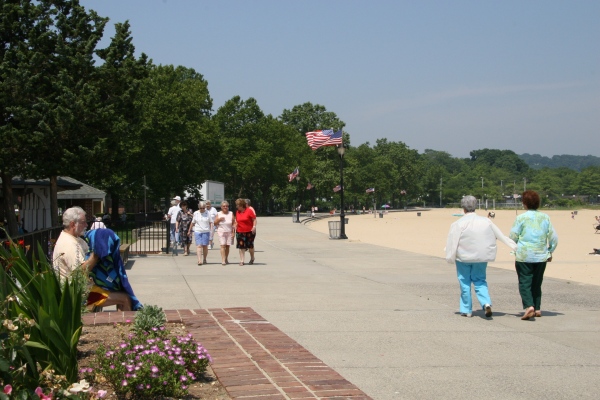The Nassau County Department of Health issued a health advisory against swimming at 18 county beaches last weekend, including North Hempstead Beach Park in Port Washington.
Last weekend’s advisory was the seventh issued by the county since the beginning of May. On four of those occasions, beachgoers were advised to stay out of the water at 14 or more beaches due to high levels of bacteria.
Along with North Hempstead Beach Park, two Glen Cove beaches (Morgan Sound and Pryibil Beach) and four Bayville beaches (Centre Island Sound, Ransom Beach, Soundside Beach and Stehli Beach).
On the North Shore, there was also Creek Club in Lattongtown, Laurel Hollow Beach, Piping Rock Beach Club in Locust Valley, Theodore Roosevelt Beach in Oyster Bay, Sea Cliff Village Beach and Tappen Beach in Glenwood Landing.
There were also five South Shore beaches: Biltmore and Philip Healey beaches in Massapequa, Hewlett Point Beach in East Rockaway, Island Park Beach, and Merrick Estates Civic Association.
The reason why the advisories — which are a precautionary measure — are so common is that it only takes a half-inch of rain for the warning to be issued.
“That advisory is based on historical data collection of bacteria in the water,” said department spokeswoman Mary Ellen Laurain. “The advisory is for 24 hours, which is two tidal cycles. And it is just an advisory — we do not close the beaches.”
She said it would likely be issued again in the coming week, with rain in the forecast for several straight days.
Laurain said the Department of Health tests for a specific bacteria that is found in the feces of humans and animals.
While some of that could come from sewers via stormwater runoff, she said that waterfowl on the beaches can leave behind a significant amount of waste that pollutes the water.
These warnings are more common on the North Shore of Long Island, she said. The beaches of the South Shore have water that is constantly being moved by waves from the Atlantic Ocean.
Water in the Long Island Sound, on the other hand, is more stagnant, especially in coves and inlets like Hempstead Harbor.
“You have less water moving in and flushing out the old water on the North Shore,” Laurain said.
That is why, she said, it is pretty rare to have beaches affected by stormwater runoff.
Laurain said the guidelines for when to close the beaches come from the state, which is why even a small amount of rain can still trigger an advisory.
Reach reporter Luke Torrance by email at ltorrance@theislandnow.com, by phone at 516-307-1045, ext. 214, or follow him on Twitter @LukeATorrance.



